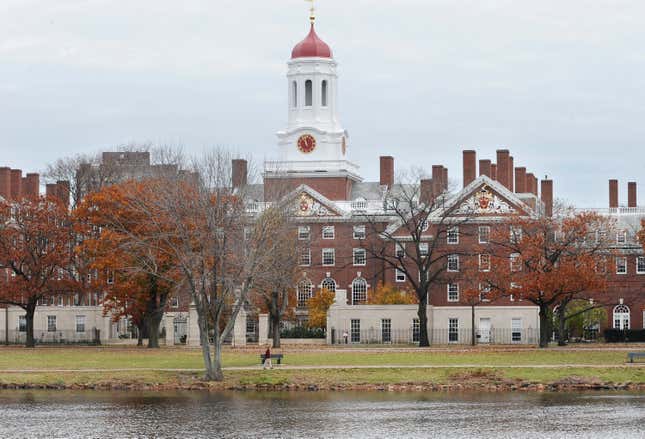
The country’s richest, most prestigious university has set up a $100 million fund as an attempt to make amends for its own role in American slavery.
Officials at Harvard University, which has produced eight U.S. presidents and has an endowment worth $53.2 billion, announced the fund yesterday along with a 134-page report detailing the institution’s ties to the trafficking and enslavement of Africans on its campus and elsewhere.
The announcement was the culmination of the work of a committee commissioned by the institution’s president and it acknowledges ugly truths about how Harvard, like so many other American institutions, rose to prominence on forced Black labor.
A few key findings from the report’s summary:
- Slavery—of Indigenous and of African people—was an integral part of life in Massachusetts and at Harvard during the colonial era.
- Between the University’s founding in 1636 and the end of slavery in the Commonwealth in 1783, Harvard faculty, staff, and leaders enslaved more than 70 individuals, whose names are listed in Appendix I.
- Some of the enslaved worked and lived on campus, where they cared for Harvard presidents and professors and fed generations of Harvard students.
- Through connections to multiple donors, the University had extensive financial ties to, and profited from, slavery during the 17th, 18th, and 19th centuries.
- Legacies of slavery persisted at Harvard, and throughout American society, after the Constitution and laws officially proscribed human bondage. Such legacies, including racial segregation, exclusion, and discrimination, were a part of campus life well into the 20th century.
That’s just some of what the report concludes. In short, Harvard’s wealth, its prestige, its power—and by extension the power it has conferred onto generations of elites since its founding, was built on and helped to reinforce, white supremacy.

